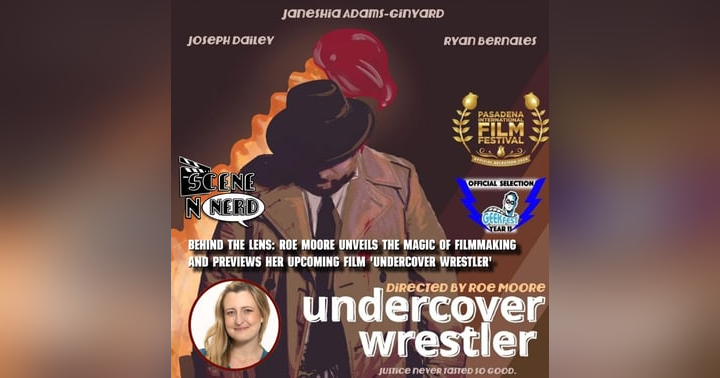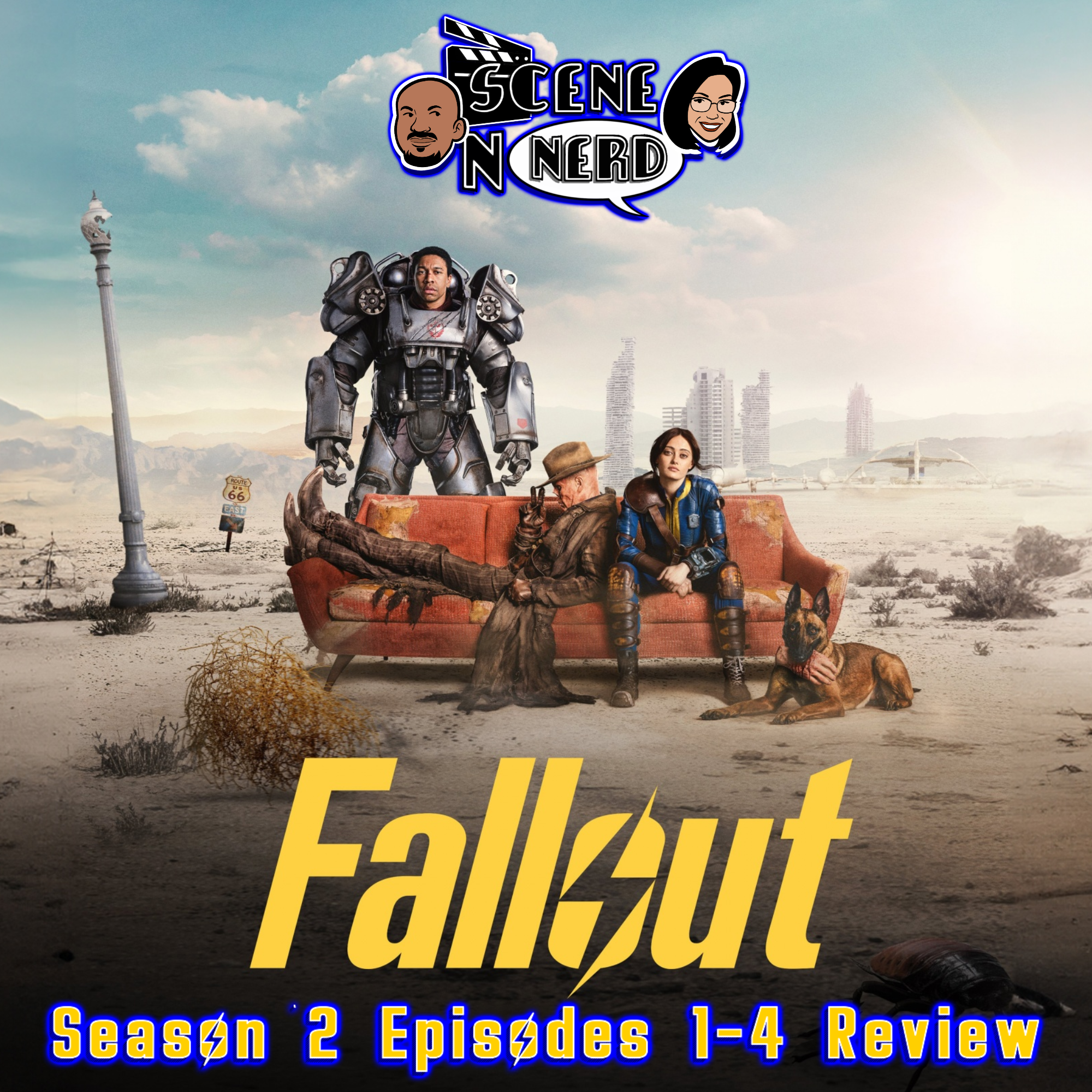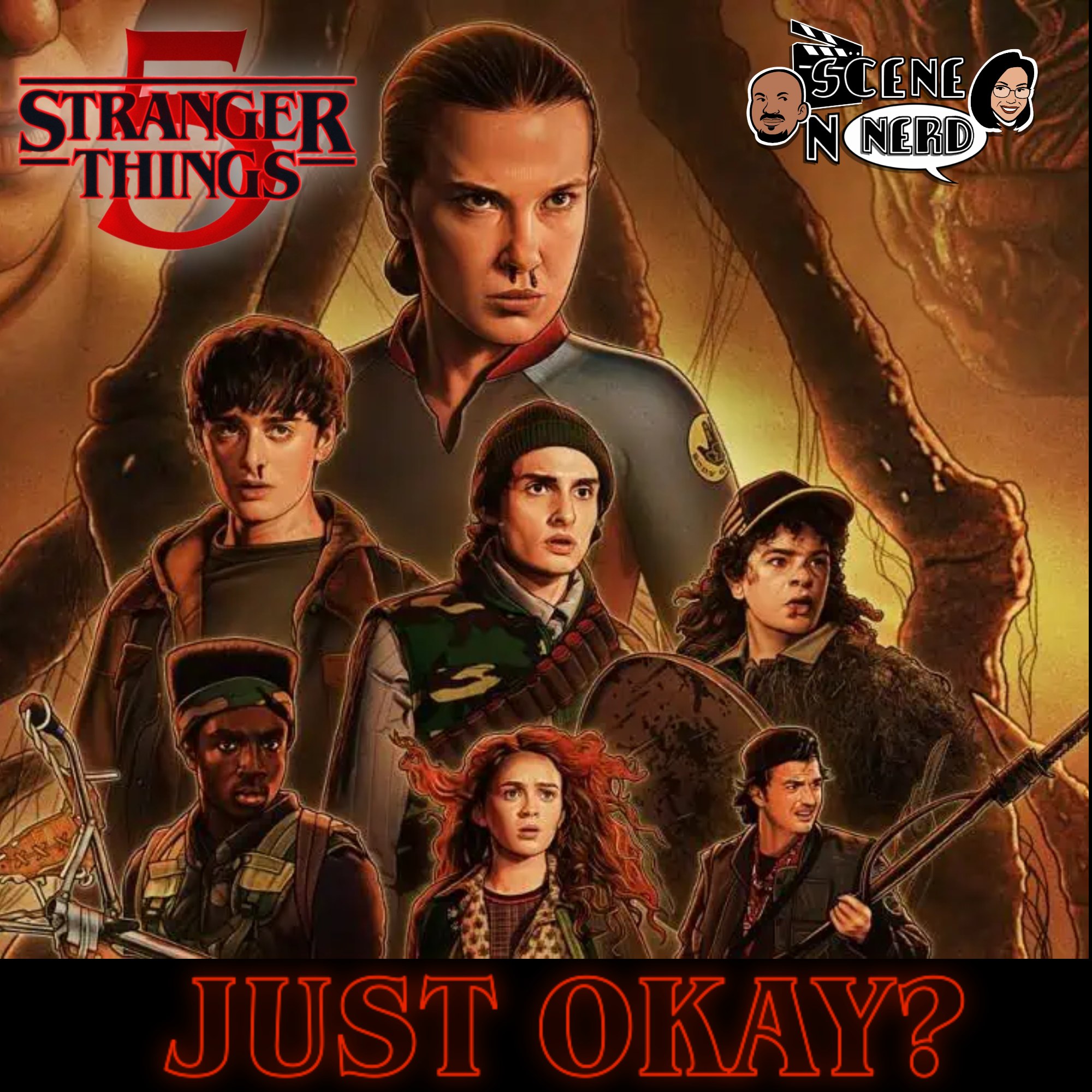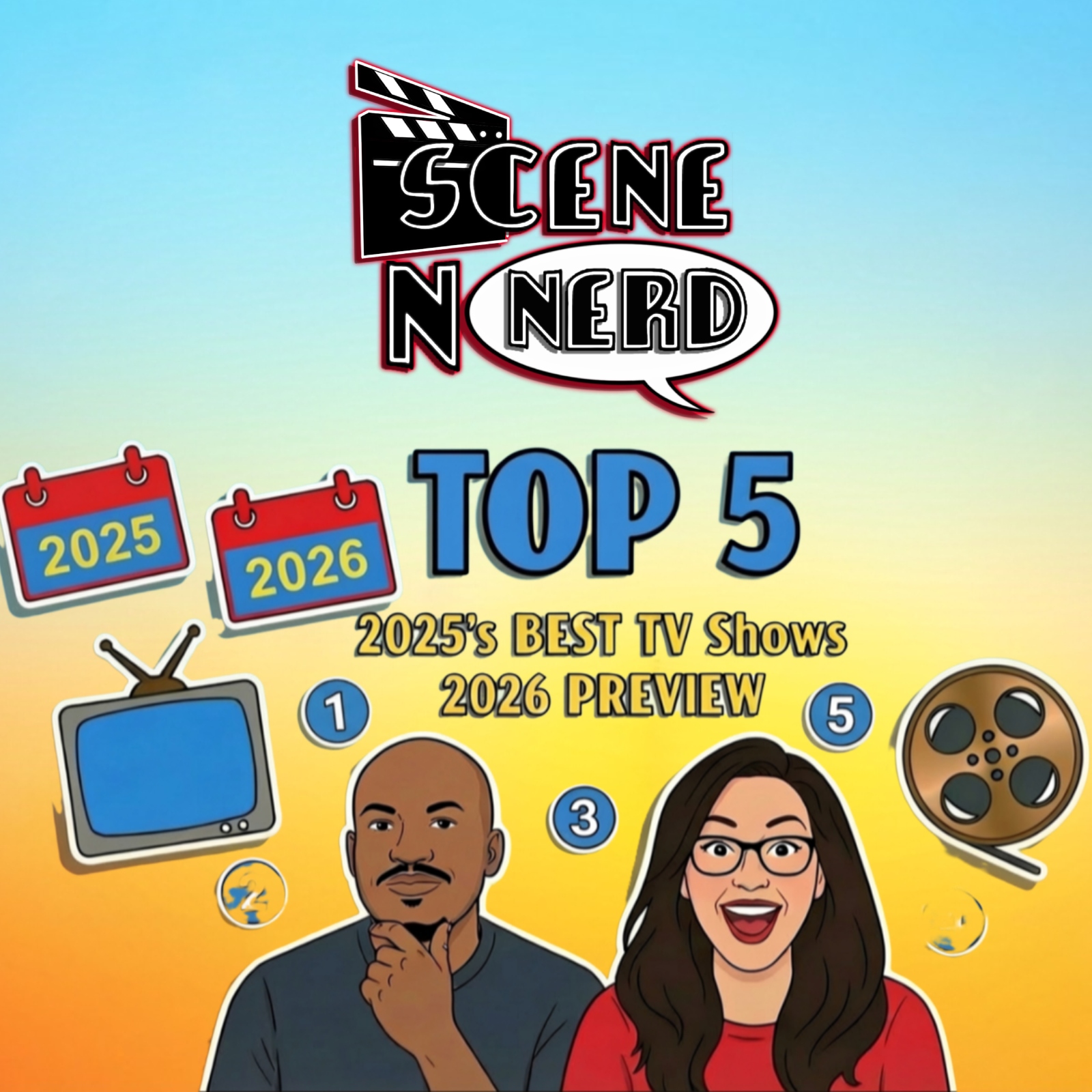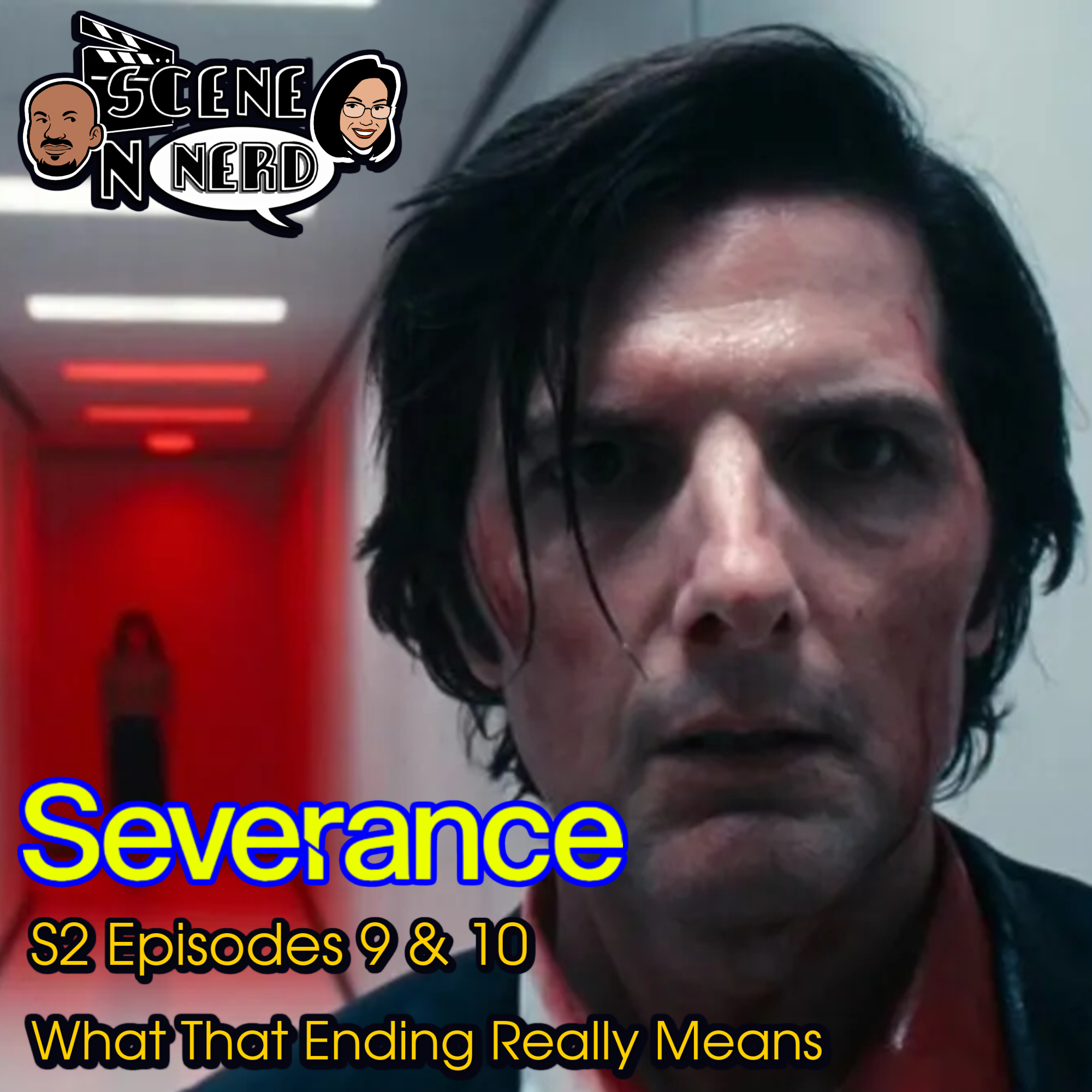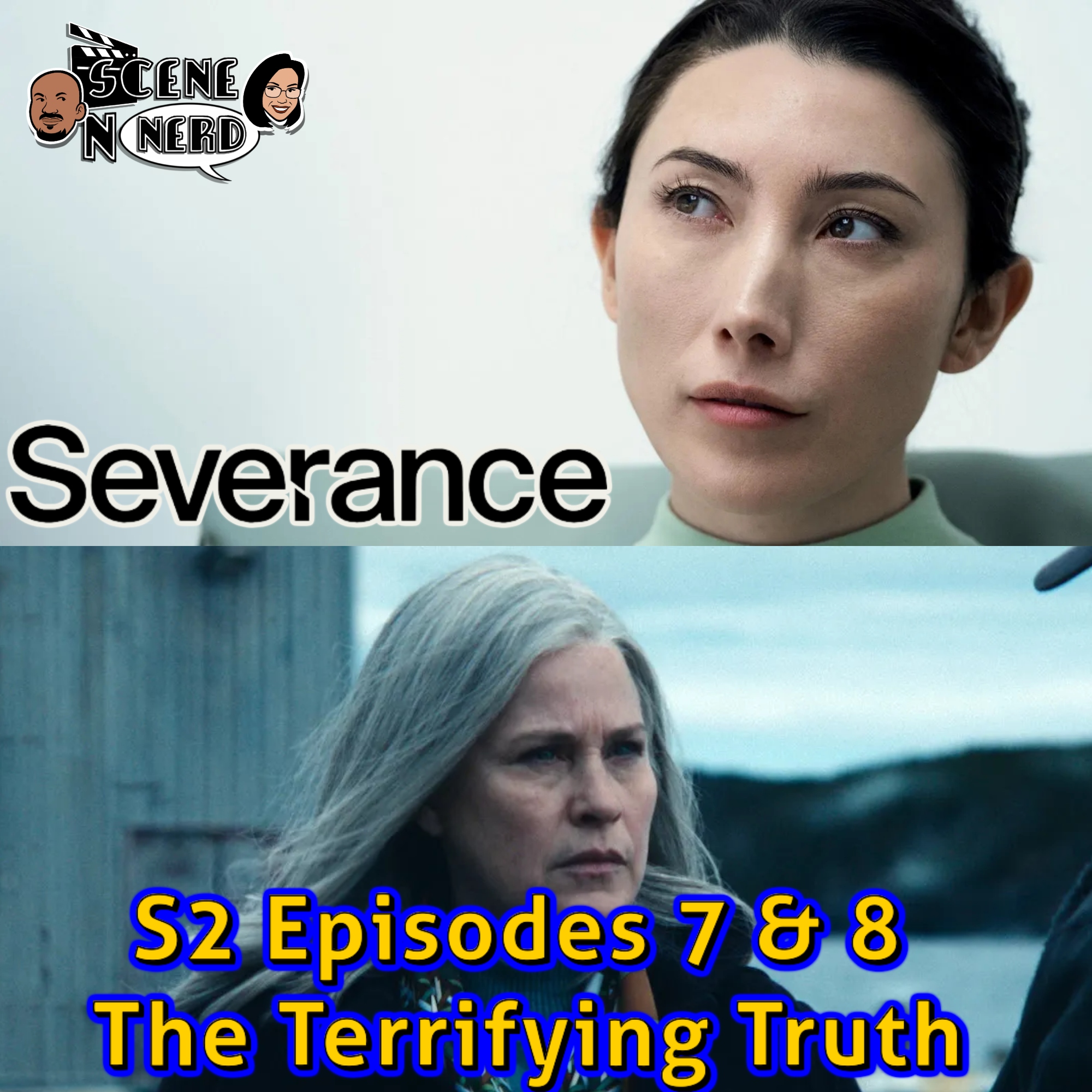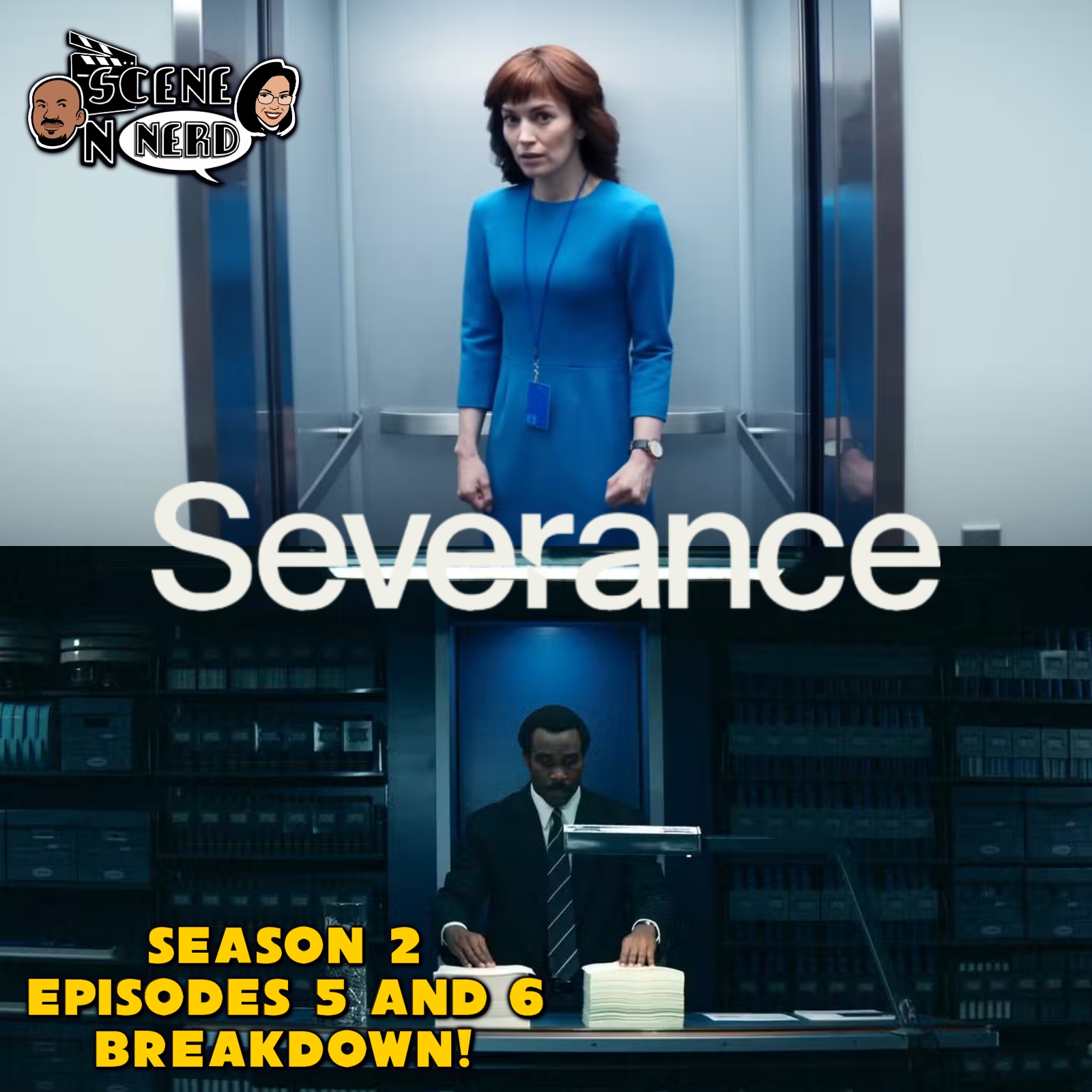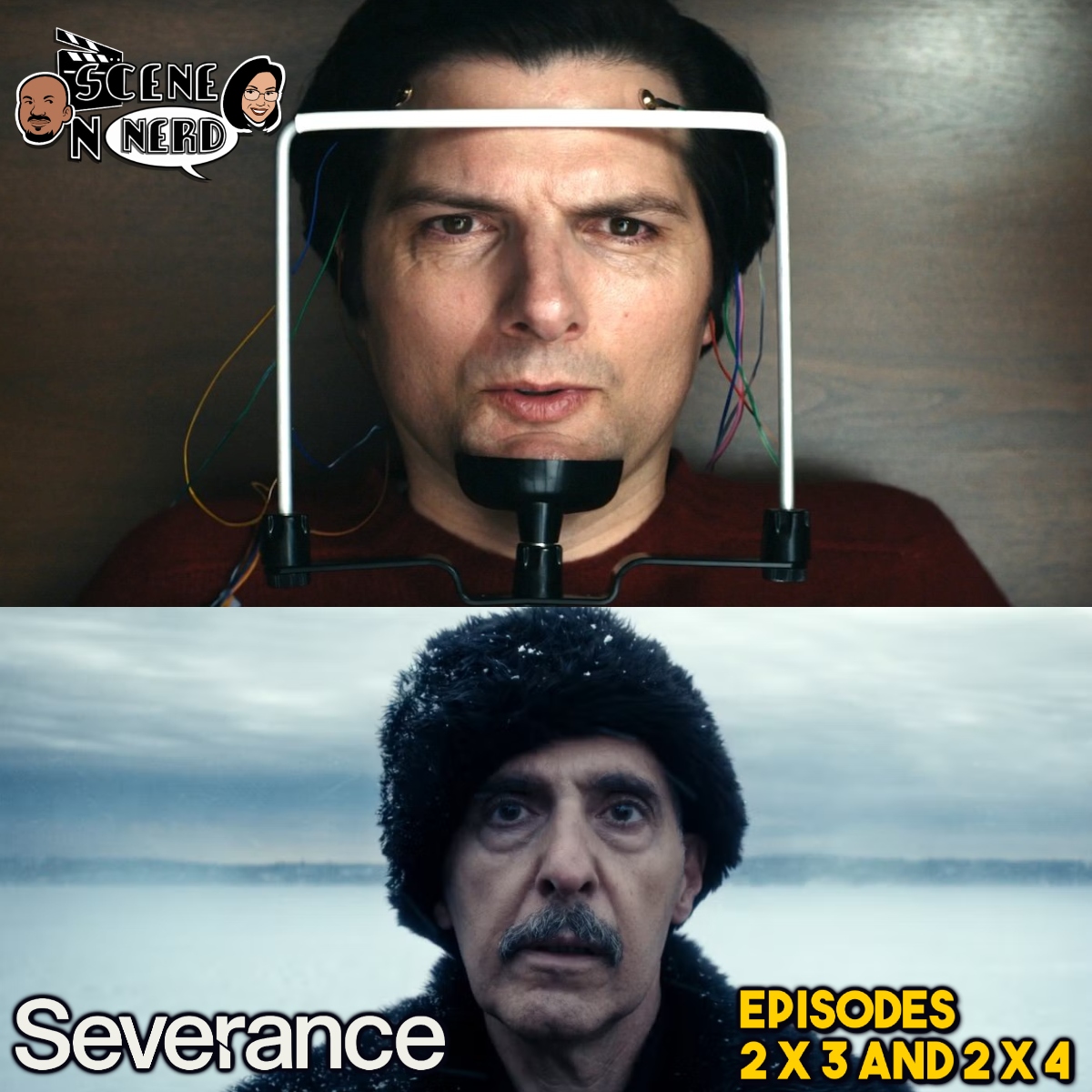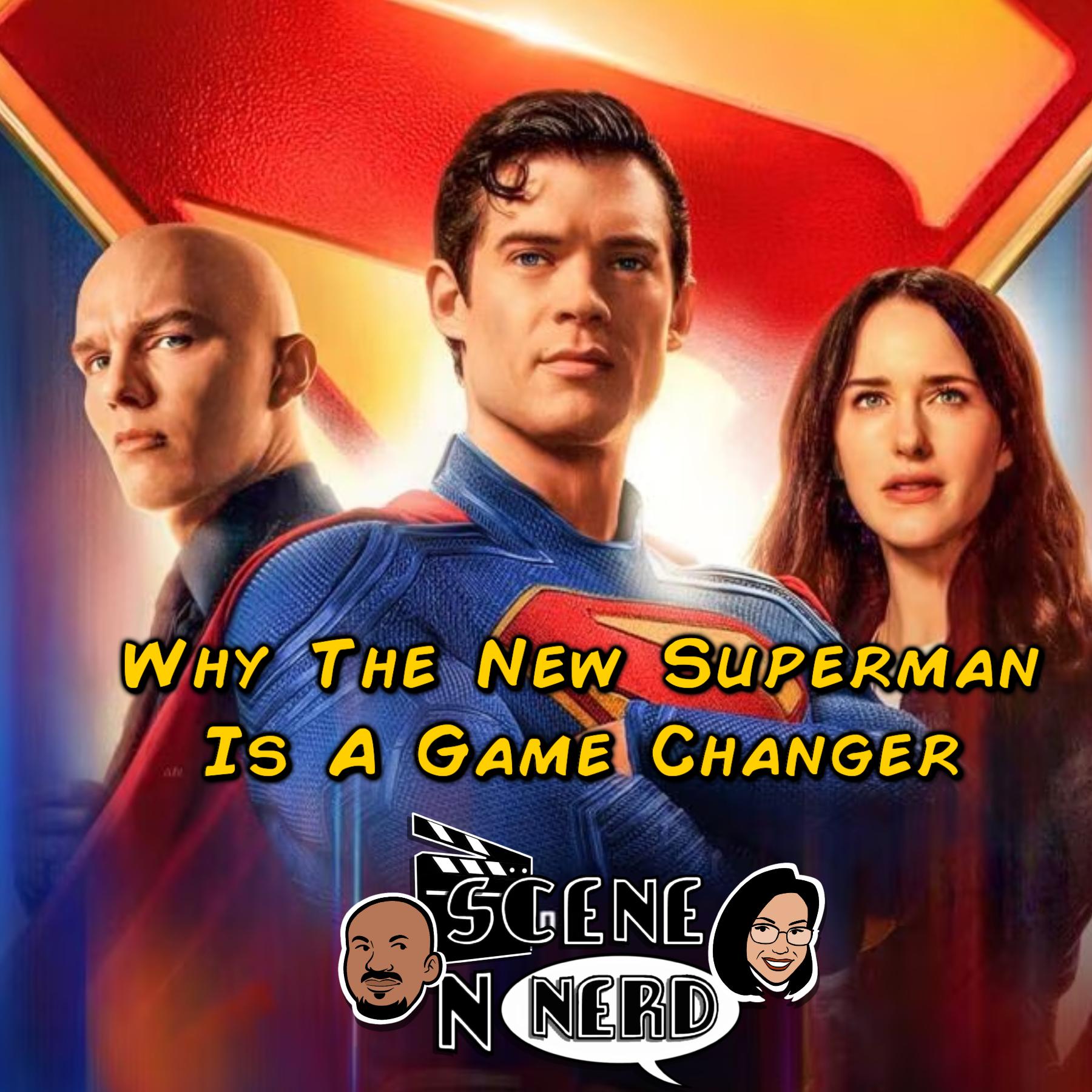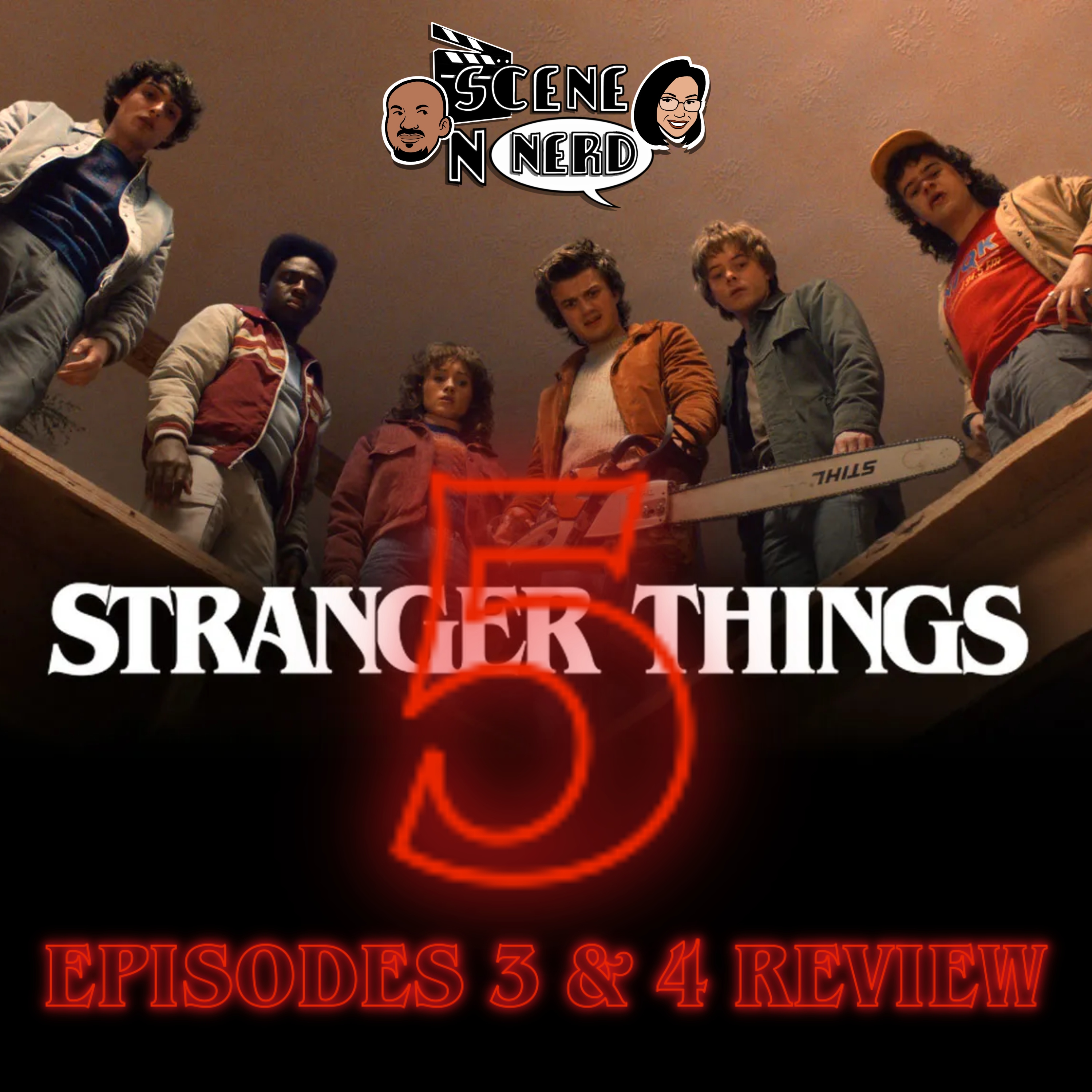
Prepare for some serious film industry insights on this special Scene N’ Nerd edition! Our Mr. Producer, Will Polk, sits down with the multi-talented Roe Moore, who juggles the hats of director, script supervisor, actress, and producer with finesse....
Prepare for some serious film industry insights on this special Scene N’ Nerd edition! Our Mr. Producer, Will Polk, sits down with the multi-talented Roe Moore, who juggles the hats of director, script supervisor, actress, and producer with finesse. Roe steps into the SNN ring to chat about her upcoming short, "Undercover Wrestler," and shares her journey from stand-up comedy to the silver screen.
Roe also dives deep into her favorite geek properties, her experiences working alongside legends like Stan Lee, and the intricacies of script supervising. She doesn't hold back on discussing the impact of AI on the entertainment industry and the recent labor strikes. Will gets the scoop on Roe's unique approach to filmmaking, her thoughts on the future of Hollywood labor agreements, and a sneak peek at her horror-comedy short, "Death by Chocolate."
This episode is a knockout blend of humor and earnest industry talk, with Roe Moore delivering a behind-the-scenes look at the world of independent filmmaking. Don't tap out now – join us for a conversation that's as entertaining as it is enlightening, and discover the passion and challenges that drive today's creatives. It's Scene N’ Nerd, where the scenes are analyzed, the nerds are revered, and the industry's heartbeat is heard loud and clear.
Follow Scene N’ Nerd on Twitter @SceneNNerd, friend us on Facebook, follow us on Instagram @scene_n_nerd, and visit our website at www.scenennerdpodcast.com. Rate, follow, and comment on Apple Podcasts, Spotify, YouTube, or wherever you get your podcasts!
>> Will: Greetings, nerds. This is Will Polk, co host and producer of the Scene N Nerd podcast with our host, Sarah Belmont Thank you so much for joining us. Today we have a special edition of Scene N Nerd We, are doing a interview show today with, ro Moore, who is, wears many hats, including as director, script supervisor, actress, producer. You name it, she's done it. So we're very, very excited to have her. She's going to be talking about her program, her, special short coming up, called undercover wrestler. And, ro, welcome to. Welcome to senior nerd. How are you doing today?
>> Roe Moore: I'm doing wonderful. Thank you for having me.
>> Will: Great, great. Well, thank you for. For having us. I know our, mutual, social media, and I guess, you know, the real life acquaintances. Geek film fest, you found us through them. We've worked with them and. And they've been great partners and pushing out our podcast and, over the years, and we appreciate them, linking us together, so that we can. We can chat today about your project.
What is your favorite geek property and how did you get here
But, one of the things I wanted to know is, you know, you probably get the question, you know, where you are today. How did you get here? I want to know, what is your favorite geek property?
>> Roe Moore: Oh, my goodness. Okay, so geek property, I have to say Sin City. I the movie, and that got me into the comic books, and that got me into Quentin Tarantino, to be honest with you. Sin City, like, like, I know it's a little left field, but that would be my choice.
>> Will: Awesome. Awesome. Well, it's refreshing to hear someone not say a marvel or DC thing, right?
>> Roe Moore: Well, here's the thing. I love Marvel and I love DC and everything they stand for. I got to actually work with Stan Lee on, Jason Mew's, movie, madness and the method. So I got to meet the legend and got to talk to him. He's an incredible guy, but, yeah, Sin City is where it's at for me.
>> Will: Awesome. Awesome. Yeah, that's, you know, Sin City is one of those properties that I will freely admit I m never got fully into. But, like I said, it's really cool to hear, again, such a diverse things that are out there. I mean, with, of course, the marvels and the DC's, but we're getting things like invincible. I know we've been really big. We're, looking forward to three body problem that's going to be, dropping on that dropped on Netflix. we're looking forward. We're going to be checking that out and talking about it on our podcast. and looking through your resume and stuff, tell us how you got into where you are today. I know you're originally from Colorado, correct?
>> Roe Moore: Yeah. So I'm born and raised from Denver, technically Aurora, which everybody now knows, for the dark knight shooting. but I started out there in a group called Colorado Actors Screenwriters assembly, which no longer exists because this was almost two decades ago. This was 2006, 2007, so a long time ago. and basically, in that group, I did a competition or challenge called six films in six months. And with that, we had to produce a short. We got a character, we got a genre similar to the 48 hours film festival, but you had to cast it, make it, edit it, and it would show in whatever stage it was in at the end of the month, every month. So it was really a, way to find out, how do you make a film? What do you need to do in order to make it look good? and that really just got me going in the path of, like, okay, well, I can produce this, I can make movies. And it was a, I guess, crash course for me, as far as a film school goes.
Speaking of filmmaking, what are some of your influences as far as filmmaking
>> Will: Speaking of filmmaking, and I know you're a director and you've written things and been a producer. what are some of your influences as far as filmmaking? I was looking at some of preparing for this interview. I've watched some of your prior work, and I was trying to really see, you know, I definitely got some of the comedy. I think it reminded me of a lot of sketch comedy, like upright citizens Brigade and, comedy, works and some other. Other properties like that. But what are some of your, influences as far as your approach to filmmaking?
>> Roe Moore: So my influence, I'm definitely more in the comedy world, so I'm glad you could pick that up, because if not, and you're saying I'm drama, I'd be like, oh, my God. Have a background as a stand up comedian. I was comedian from, like, 2011 to 2013 around there. Did, like, the comedy store, ice house, laugh factory, those guys. and then I did second city. So I'm a graduate of the conservatory program for improv. and a lot of the people that I surround myself with are at UCB or groundling. So we do a lot of comedy, in general, just because that's what life is to us. It's easier to get through the craziness that's going on if you can just laugh at it. but my influence is, I love Edgar Wright. I think he knows how to do comedy well. And it's interesting because I'm really studying up on the differences between american comedy and british comedy. the main difference is the physicality of what the comedy looks like on screen. So I love bringing that in.
>> Will: Cool. Cool.
So, you know, when I think british comedy, it goes classics
So, you know, when I think british comedy, of course, I think some of the more classics of Monty, Python. and also. But, was that some of your, some of your influences there as far as some of the classics? Or is it more, more contemporary?
>> Roe Moore: So, yeah, it goes classics. Because when I was growing up, my mom would make us watch are you being served on PBS? And then Mister Bean, my mother obsessed with mister. So any Rowan Atkinson that was physical, that could be like, that hilarity of, like, the silence and the, everything around the world is just against him. so that's where that comes from.
>> Will: Yeah, yeah, I know.
How we met is a short comedy about how we met
And I know we'll talk about intercourse of a wrestler, but I know I was watching, I did watch the short, how we met, the wedding, building website. And what was your inspiration there before, for folks who haven't watched it, you know, make sure to drop, drop the link in our, in a chat whenever, we release this. But, I just love the premise of the, and I think about it with my wife, too, as far as, like, when we tell the story about how we met and, you know, there's, you know, over time, it, you know, things get embellished or change. And, and so when I was watching it, you know, hearing the characters talk about what they saw, but then you juxtapose that with what actually happened. It was just, it was super funny. So tell me a little bit more about that project.
>> Roe Moore: So how we met came about. So I'm in a comedy, ah, group called Gold Comedy, and there's something called digital teams. That's a branch of that, where we go and we make a film or comedic sketch every month. And how we met was started because Lee, who, who is the writer on it, has a fear of getting married. And we were just like, why are you so afraid? And she's like, because what if it's the wrong person for me? And what do I do about that? And so she wrote the sketch to highlight how everybody needs to be politically correct when they write their how we met story. And, I took it and went, okay, this can be the most boring interactions, but how do I make these boring interactions something that people want to watch and laugh at? So the hot guy montage that I love so much with the girls, like, faint over the guy and the fact that they can never get on the same page. I love the bathroom scene where she comes out of the shower and he's just like, what are we? And she's like, I don't know. You tell me. I have a date tonight. And, like, I have purposely left the viewer being like, is it a date because they're on a date, or does she have a completely different date now? She's using them, so a lot of fun.
>> Will: Yeah, that scene does stick out to me as well. I mean, the ambiguity there when I watched it, and I did. Yeah. and I don't want to spoil it too much for anyone who goes to see it, but, it definitely, like, I was like, So if, you know, spoiler alert. folks, if you haven't watched it, pause here. Now. I'll tell you when to come back. But for those folks who have watched it, tell me, you know, I know a lot of many times creators on these podcasts will share what they're, what they're interpretation or, intention doing was for it. And if it's supposed to be ambiguous, you know, for free to say so. But was it supposed to be? Or is there more going on there, especially given what happens later in the film with the, with the salsa lesson. Yeah.
>> Roe Moore: Purposely meant to be ambiguous to see, like, he cheating on him with the hot guy. Or is it like the hot guy just becomes a really good friend of theirs? Like it was meant to be ambiguous.
>> Will: Okay, cool, cool.
One of the things you've done has been a script supervisor
All right, well, coming back, coming back, since we've got out of spoiler land to the project. So you've had many jobs, and I know we're here to talk about a cover wrestler, but while I had you, one of the things you've done has been a script supervisor. And looking at your IMDb that's in your website, that seems to be a pretty big part of your career. And I had the opportunity to, in preparing to listen to you talk about your past, to that career, that part of your career, how, you got there. And if he maybe could give a, you know, a quick 32nd or so, you know, summary as far as how you end up being a script supervisor. But, you know, one tell our listeners and watchers, you know, what is a script supervisor, how much, what you know as part of that, what, you know, role you have there as far as keeping things on track. And I know, like, I knew, like, I was listening to script supervisors, Star Trek. They really talked about how and there will. Actors can't go off script, but given your background in improv, you know, the projects you've worked on, you know, do you have that, some flexibility? So I'd love to hear, hear from your perspective on what your role in that is and, how you got there, for sure.
>> Roe Moore: So, script supervising. I'm essentially on set making sure that what's written in the script is what we are capturing on the camera. So that way, in the editing room, they can put it all together and follow along as far as what the story is, what the characters are doing, what they're saying. And then, I not only do that, but I also make sure that everything can cut together. So if someone happens to pick up, like, a coffee or a cup in one hand, they stay consistent with that hand. that way it's not all of a sudden, hey, the cup's here, the cup's there. I'm sure everybody loves those goofs in the movies when they're like, ah, you got that. so that's what my role has been primarily for the most of my career in the entertainment industry, and I have been lucky enough to work on a lot of projects that have the comedy and improv where they can go up on lines. They can. One, movie that I did called entertainment, which I think screened at Sundance in 2014, 2015, somewhere around there, that one, I literally was handed an outline of, like, this is what we want to have happen in this section. This is what happens in this section. So the actors were literally told to come in and say, okay, whatever you want to say, it just needs to be within these parameters. And I was responsible for tracking what they said, the subjects that in the order that they said them in, what was funny, what didn't work, and they really workshopped the scene while I was. While we were on set filming it. And by, like, take six or seven, we knew what the scene was, and they kind of kept to the same lines roughly. but when you're doing that, you learn so much about what works in the story arc. What do you need in a scene? How does the director, because I'm sitting right next to them as a script supervisor, how do they wrangle in when something goes too far off the block? And how do they, make sure that the actors feel confident and what they're being told and said, so that way they can perform without these, like, subconscious mind of theirs going, this sucks. This sucks. So it's a freeing opportunity, but it is a challenge to be in that role.
>> Will: Yeah, yeah.
How strict is the script on some projects and others depends on budget
are there some projects, where is it one of those things that depends on the director as far as, like, how much freedom the actors have with those situations? Or, or is it, Or is it really like the project will lend itself to it so that, you know, some projects like you, as one, you just noted, you know, basically given a blank script, then y'all just riff on it. Or, you know, or if it, or if it's one that is a very regimented script, but, you know, have a little bit of flexibility, but not much. You know, what really drives that as you're going through production, because time is money, when you're working on these things. And, especially, I'm sure, you know, I mean, I'm sure you've worked on mega billion, million dollar projects, but also very, you know, shoestring budget projects as well.
>> Roe Moore: Budgets, yeah. I mean, really, what dictates how long you have and how strict you have to be to the lines is really the network of the outlet. So if you're doing network tv, particularly sitcoms, you have to be on the mark with your lines because the rhythm is there. They write it in a very specific manner of, like, even if there's three items in a dialogue. So, like, oh, the rigatoni, the macaroni, the linguine, like, they specifically wrote it in that order. So you have to say it with that intention and with that order. they also time it specifically for tv. So they can't be over 22 minutes or 22, 30 seconds on half hours, 44 minutes on 1 hour. Because if you go over, then the advertisers lose their time, or they end up having to start the other programming late, or you're going to get cut off at the end. It just is what it is. So it just really depends on the strictness of the outlet. And sometimes feature films fall under this, too. I've noticed that sometimes, like, Netflix will say, okay, we're expecting a 92 minutes film, and if you don't turn in a 92 minutes film, we're going to have issues. But that's where it becomes a little bit of how strict you have to be with that script. and then it comes back to the director. Like, if they feel there's a certain pace, if there's a certain tone, if there's a certain reaction or performance that they want from the actor, they may say, okay, this scene is going to be slower than the rest of them. Let's actually build something here and show the relationship. And then later on, we can make a. So, yeah, it's really up to that vision after that.
>> Will: Cool, cool.
You've worked on several unscripted shows, including RuPaul's Drag Race
I know also, you've had the opportunity to work on, many projects like, master, of illusion, as far as speaking of networks. And I think, you also mentioned RuPaul's, drag race as well.
>> Roe Moore: Yeah, I love RuPaul. Oh, my God. Ah. I've worked on their show three times. it's always been for the reunion and finale episode. So I don't get the drama leading up to it, but we can unfold in the reunion and the finale. but when I'm working on those shows, it's a totally different land because that's unscripted. So nothing is like, other than. Okay, we know in act one we're gonna ask these questions. Act two, we're gonna ask these questions. And at least so and so is gonna perform at this act three or like commercial break situations. but those are the funnest because you really have no idea what might unfold. It's at the people in front of the camera. and then just being ready should something go awry or crazy to just run with it.
>> Will: Yeah. Cool, cool, cool.
The director skill of America recently reached a new collective bargaining agreement
Well, speaking of, unscripted and scripted productions and stuff, and we're now several months removed from. From the strikes. really wanted to get. Get your thoughts on several things with that, especially being someone who works in the industry. One, just, I know, you're part of the director skill of America, and y'all were fortunate enough to, you know, get your deal done before. You know, I think it was sort of in between when the writer struck and when the actors went on strike.
>> Will: but looking at that, what are some of the things you can see? You know, let's take it. You know, we got, we got relative labor harmony. I know there's things going on with other guilds right now with the many animators and other stuff, but we have relatively. We're going to have somewhat harmony for the next three years. But yeah, but looking ahead and especially someone who's into industry, I'm very curious to know, what things. one, do you think these, just for all the three major guilds, do you think there one was, what were these good deals for the industry, especially given the landscape we're seeing how studios, are sort of at a crossroads where we're hearing things like paramount thinking, you know, maybe getting acquired by someone. And Warner's, you know, going through a lot of fluidity as well, and some of the others. So I was very curious, you know, for both sides, both for the, from the studio perspective, as well as the performer and cast, you know, and crew in line perspective. do you think those, these agreements were good for the industry?
>> Roe Moore: I mean, on a lot of levels, yes. Because even in the last negotiations, three years ago, there were a lot of things that got dropped. And it was mainly because the new media aspect, it's not necessarily new media anymore. It was back in 2010, it was back in 2012, but it's got an established reputation now, and it has an established audience. So the fact that we had to wait this long to push through a lot of the, requirements and the contractual agreements, I mean, it was necessary at this point, I think that we did. The WGA definitely got a really good contract, and I think they pushed a lot of things forward that will help future, generations and any future negotiations to make sure there's a president set and that there's expectations to continue the pipeline, because there's not really. The one thing that they were hoping to fix is the pipeline of how to become m like a staff writer, to being a showrunner, to getting in the positions and having the diversity of shows that we had in the eighties and nineties where it wasn't all chuck Lorre or all Seth MacFarlane, and that's all you get. So hopefully that got fixed. Sag, I believe, did also. But I've started digging into their contract a little bit more, and there's some things that I think they left crumbs on the table, but a lot of I will say, you know, they negotiated hard, and that was, it was a struggle to get to what they got to. So I admire m them and anybody that's on the negotiation teams, especially with iazi, because I'm also local 871 script supervisor. it's no easy feat. It's no like, you go toe to toe, and that's hard when you need to consider everybody's living, expenditures, especially with LA being on the rise.
>> Will: Yeah, yeah, yeah, yeah.
Looking ahead to 2026 when these deals will come up again
One of the things you mentioned there about the breadcrumbs being left on the table, and also love to hear your perspectives as far as iot see and some of the others, because I know people really focus on the big, the relatively big yields. But, just thinking of looking ahead to 2026 when these deals are, will come up again. What are some of those breadcrumbs? I know you mentioned you're an it member. I don't know if you have your sag hard or not, but, what, breadcrumbs do you see that could be potential landmines when we get to 2026 that were left on the table. One, and then two, as you mentioned, other unions that have a role in the industry. what are some things that could be done to help protect folks? Because I know one of the big things that was, you know, that was often lost out in the discussions last year was all the below the line staff who were impacted by these strikes.
>> Roe Moore: Yeah. And, I mean, that's been a big part of it.
I think AI will look a lot different in 2026, Chris says
So, first, I think the breadcrumbs that remain that in 2026 will be a lot different, is AI. I think that's just a known across, not just our industry as the entertainment industry, but as, like, a worldwide phenomena of like, how do we handle this and how do we restrict it in manners that are ethical and not cost people jobs? The one thing I keep telling everybody, and sorry if this is controversial, but who said I wanted my job replaced by a computer? And I don't recall putting that inquiry out there, but it seems like that's the one, goal of AI, is to be like, well, we can replace all these humans jobs. Well, great. But how do I make money now and how do I survive knowing that this computer, like, it's a whole thing with me? Because I, I'm artistic for a reason. I'm doing directing, I'm doing storytelling and things like that. My mind cannot wrap its head in front of a computer and reading code. So, like, my biggest battle, and again, sorry to get off my soapbox, but my biggest battle is, I m don't want to say that there's a ton of jobs created, because the jobs that are being created are the people that are going to be sitting and reading the code. It's not going to be creating me as a creator and storyteller jobs as far as what I want to do and pursue in the industry. But I think AI will look a lot different in 2026. We'll see. Maybe it'll be like 3d movies and it'll show up for three movies, and then it'll ride off into the silent sunset and we'll forget that AI was involved in movie making. Right?
>> Will: Right. Yeah, yeah. Just to pick on IaF one.
As a script supervisor, are you seeing AI more utilized in scripts
you know, given your role as a script supervisor, and I'm sure you're probably very sensitive to these things, what you touched on is some. But, have you seen, especially now, you're back to work and stuff, in the scripts and stuff, are you seeing it utilized more? Because I mean, you can. Yes. Generative AI has come, has made quantum leaps and innovation here, since it's really been utilized more since chip. But, are you finding more that sort of script sprinkled in for, you know, from where you can install a human script writer from the machine script writer.
>> Roe Moore: I mean, I don't have the, I wish I could go behind the curtain and see really what's happening, but I do know there's been word that AI and generative AI founders are meeting with Hollywood studio representatives to say, here's how we can help. it has you been mentioned, I think, like wb, that you're using AI to scan a script before they send it off to a reader, which I think is unfortunate because I've used a, I've tampered with it. I've been layering, what's this thing? but it's not human enough to understand and be able to dissect and read between the lines. It's just giving the facts, which is great, but storytelling is not the facts. It's the, all the in between and the gray. So we'll see. I do know that a couple, like my storyboarding friends are very concerned, because anybody, there's something called previz pro and I can create animated little things and I can do my own storyboarding now and I don't have to hire a storyboard artist if I know how to use the program. and it's great. I'm excited to see where it will fall and have its shortcomings, but it's, it's going to affect a lot of different departments.
>> Will: Yeah, yeah, well, ah, that's why I really wanted to get your perspective on it because, you know, on our podcast, we, you know, we're talking about the finished product and after it's gone through the production and being made and we're, you know, we're reacting to what we see on the screen. But I mean, I think it, you know, I really wanted to give creatives like yourself the opportunity to really, you know, we've gotten this, you know, because it's one of those things for me as a consumer, it just seemed like the strikes happened. Everybody's back to work and folks aren't really talking about it anymore. But, I know, but, you know, but having followed it and knowing that, you know, this is really just, you know, these are three year blocks and, and it seems that while overall seems most people were generally happy, you know, well, I won't say happy, but maybe satisfied with what came out of it, you know, I did want to get your perspective of someone who is working in the industry to see what things, you know, what potential stumbling blocks could be happening. And will we be back at this place again, in just a short time?
>> Roe Moore: Yeah, we'll see. Figures, cost. Hopefully we don't have to go through another multi month strike in three years.
>> Will: Yeah. And to that point, what are some of the things that you think if, God forbid, that that does happen again, what can be done to help some, of those folks be honest, like, you know, unemployment, those types of things, but, that can be done to, to really, help creatives when they're, when they're going through, whenever these negotiations are going through that process and, being protected. feel like it's a little like our government where you're, like, going through their shutdowns. It's like the poor workers are the ones who are hurt while the games are being made by these people off the far line, far away land, political or anything. Yeah.
>> Roe Moore: Obviously, because I got, I think I got struck down that strike pay isn't gonna happen. So that's already one protection that we could continue to fight for. But I know, like, I'm very proactive as a person, so I'm already looking like, okay, how do I diversify my income? Like, is it whether I go into another industry and, like, buy or, like, claim and, business that's like lawn care or something like that, and really invest in that a little bit? So I have a balance between two items, one that's more volatile and then one that's more stable. a lot of my friends are looking at transitioning like that or finding a way that our skillset and the industry does translate to the real world. because we always call it the real world. We know where the circus over here.
>> Will: The land of make believe. Yeah.
>> Roe Moore: but we really are trying to find ways. Like, as a script supervisor, I'm very detail oriented. I know I'm very quick to analyze data so I can do quality control. So a lot of us are trying to find ways to balance that, but the fear that is coming up with that, and I say fear in a really, fear is the bad, wrong word. It's a bad word for it. But the idea is that filmmaking will now become a side hobby for a lot of us because we have to pay attention to the stability, and that's not what we want. We love that. What we do and what our passion is pays our bills, pays our, lifestyles and everything like that. We don't want to say, oh, hey, I have this opportunity to work on this marvel film, but I can't because my day job.
>> Will: Right.
>> Roe Moore: Like, that's not what we want to do. And so it's really a challenge to navigate that and find a perfect balance for everyone that when a strike happens again, we can prepare for it better and financially, not be, at a loss, like a lot of us are right now.
>> Will: Cool. Yeah. Well, hopefully, a lot of lessons were learned. but also, hopefully, when we get to the next round of negotiations, things won't get to this place where there'll be any stoppages and people can continue their livelihoods and their passions, because, it's definitely a mix of both, with any industry that you're in, anytime we have left. I know.
Your latest project is called Undercover, uh, wrestler
again, you're here to talk about, your latest project, which, I see is in post production, recorded at IMDb. Undercover, wrestler. So tell us all about that. and when can we expect it to be released?
>> Roe Moore: Yeah, of course. So, undercover wrestler. Whoo. it's got a catchy theme song. It's kind of a music video, meets a regular action comedy film. it follows a guy named Undercover who likes to come around and pops out of nowhere on small, stupid injustices. So forget your turning your blinker. Undercover is going to show up, in this episode, I guess we could call it our short film. it's basically Leonard decides to steal his sister's crinkle cut french fries, and he gets to SmackDown. But we are very much looking forward. It'll world premiere at the Pasadena film festival on April 7, so we're looking forward to that. And then it will be touring with geekfast.
>> Will: Nice. Awesome.
>> Roe Moore: Yeah, we're super stoked. Joseph, who plays undercover wrestler and wrote it, Joseph daley, he is looking forward to touring with Geekfest and being at a table. We're making a comic book side to it, so he'll be right there to meet the guy. And if you want to know more of what's going on, we plan to develop this out a little bit further.
>> Will: Awesome. Awesome.
So, um, I know you directed this project, correct? Yes. So tell me what motivated this project
So, I know you directed this project, correct?
>> Roe Moore: Yes.
>> Will: Yeah. And I saw it on your demo reel. I saw the incident with the crinkle cut fry. So tell me what. Why the crinkle cut fry? I mean, I think, you know, you touched on it earlier in our discussion after this afternoon, and, some of the comedy and this, how life situations just sometimes are just funnier than anything you can script out, but tell me, what was the sort of driving motivation and force behind this, this project?
>> Roe Moore: So Joseph Daley came to me with this group called Comedy whoops, or, whoops comedy. And they had a whole bunch of shorts that I was like, hey, well, I love to direct some of these. let me take a look and see what you got. And I fell in love because, first of all, it's physical comedy, and I grew up watching, WWE, with my brother. I didn't watch it as much as my brother, but I know who triple h is, and I know the rock. my dad was a huge fan of Hulk Hogan, and, like, so when I read it, I was like, oh, no, this. This hits too many of my heartstrings. And I'm just like, oh, I love this. I love this. And one of my great friends, Ann Wescott, is a stunt coordinator here. So I was like, instantly, boom, we've got the team. We can make this happen. but I loved it because it is over such a small injustice. And that's what makes for the best comedy, is when it's, like, really, like, when you want Larry David do something stupid, you just go, how in your mind is that okay, when the world allows the world around you to just respond, like, in that manner? So we took it to that extreme of, like, well, if it's just as simple as crinkle cut fries and you steal them, of course you're gonna get the throwdown. so it was a lot of fun to put that together. And we had rehearsals leading up to it that were, navigating the different movements. We do something from wrestling called the powerbomb, which, if you've ever watched it, it's apparently the most difficult move in wrestling to do. like, a lot of the wrestlers train up to do it, and we pulled it off on camera and full wides, so in all its glory, so.
>> Will: Wow. Wow. So, so were you director slash stuck coordinator?
>> Roe Moore: Oh, no, I leave coordinating to Ann Westcott. She's amazing. And then we had Alyssa Rattao from women of, wrestling that came on board to help wrestling coordination. so between the two of those ladies, by the way, all female stunts team, that doesn't happen.
>> Will: Yeah, that's true, that's true.
>> Roe Moore: but, yeah, they handled a lot of how the movements would. I just oversaw. Okay, so we need to have this move take them from the booth to the open area, so that way we can do whatever we want and we're not restricted by the space. And then, how we were going to capture it on camera. So, like, making sure that the hits looked real and that the camera angle gave the comedy feel to it. Like, there's a moment in there where undercover is, like, ducking and missing the punches from Leonardo and just having him come up and make faces and be like, haha, you missed me there. all of that was just, like, a, culmination of what me, Anne, and Alyssa all built together to make.
>> Will: It on the screen as a director.
The film is premiering at the Pasadena International Film Festival this weekend
was this one of your more, challenging projects to direct because of integrating the story? You know, you got the wrestling, you got the. The physical aspect of. I know you're used to physical comedy, but, probably getting the right angles and stuff, so, you know, so it hits right. I mean, was, what were some of the challenges for you as a director?
>> Roe Moore: Oh, my gosh. So I'm lucky because I got to work on a couple seasons of a show called Lucha Underground, which, I don't know if this is in the nerd world as much, but it was a wrestling show that showcased luchadors and their wrestling and their different personalities. So, I got to watch skip chase and figure out how to do the stunts. And we had three cameras on that project. So when I decided to do undercover wrestler, I only had theater plays under my belt. I maybe shot one other thing, but it was, like, so simple talking head style that I was like, okay. So, yeah, I was really a little in over my head when I came into. I was confident on the outside, but on the inside, I was like, oh, shit. But, yeah, no, it was one of the more challenging. We had three cameras on set, just like Lucha. And it was a matter of, how do we cover this? Because we didn't want to tire out our actors and have them do it repeatedly. it was hard, especially, since Joseph's not a trained wrestler and him playing the undercover wrestler, I didn't want to be like, all right, take 25. it was just a lot of discussion, and me and my DP, Ray hastings, who's an amazing queer camera, operator, DP, cinematographer. we came up with strategies of how to put the cameras in different areas that would allow us to get the wide at the same time as the close up, at the same time as the movement of the camera to be able to transition between the hits.
>> Will: So, awesome. Well, so I know it's premiering at the, ah, with the Pasadena, film fest.
>> Roe Moore: Correct. Pasadena International Film Festival.
>> Will: Festival, yeah. So, will you have any distribution, beyond the. As far as on YouTube or other, other mediums where we stream streamers or anything where we can for people who can't make it to California to see this.
>> Roe Moore: Yeah. And obviously the different geek fest, conventions will be there. And then after that we are seeking opportunities. So if anybody is listening, we'd love to do that before we just release it to the world on YouTube and see if we can get it maybe on Roku or shorts tv, those kinds of outlets, so everybody can enjoy the insanity that is undercover wrestler.
>> Will: Awesome. Awesome. Well, good luck with that. Hopefully, you'll get great feedback. And a lot of folks, whenever they have the screeners at the cons and, oh, that's always, I know we have our local Durham Comic con and they always have opportunities, for not only the well known things, but also for smaller projects as well and the breakout session. So, you know, hope it goes very, very well and hopefully the Roku's and and the streamers of the world can, you know, can pick it up and get it to a much wider, wider distribution. Because, again, as we talked about earlier, it's great for the big, big things, but you know, we want to support our small independent filmmakers as well.
>> Roe Moore: Exactly. That way we can keep making it and then kind of not your syrup, but take over the studio system.
>> Will: Yeah, there we go. Get some, get some diversity. And not everything has to be, a big comic book. Two, hundred million blockbuster.
>> Roe Moore: Yes, in the words the academy speech, like make 20 million or maybe take $25 million.
>> Will: Yeah, exactly. Exactly.
Anything you would like to share with listeners or watchers about upcoming projects
Well, great. Well, anything, what you would like to share with us here? I mean, I know I've actually a bunch of questions, but, before we close out, anything you would like to share with our listeners and watchers that you have coming up on the horizon or as, far as upcoming films or projects or, things that you can talk about that's not covered under NDA.
>> Roe Moore: We have been working on another short film that I think your nerds might be interested in. It's called death by chocolate, and it's a good horror comedy about a girl who's allergic to chocolates and rose petals and she gets tempted and put through the ringer similar to saw of like, well, I can't scare you in the normal ways. Will rose petals scare you? So that'll be fun to do this year. and then, yeah, we just look forward to a lot more of the undercover showing at different festivals and I'm hoping we'll have more on the horizon as far as a feature film fingers crossed.
>> Will: Fingers crossed. Well, ro, I really, really enjoy this conversation, and I hope you can come back to, join us again here on the podcast. Maybe our host, Sarah, will be able to join as well. I'm sure she'll probably have a bunch of questions, but tell, us, tell everyone where they can find you. I know. And where can they find your production company is PI PI Productions.
>> Roe Moore: Yep. PI PI productions. so we are most on Instagram, so you can find it at pypi prod. So that's p I e. P I e prod. P r o d. Or you can find myself, I'm ro mo, so that's where we're most at. If not, you can go on to pypyproductions.net, and that will have all of our, projects listed up there where you can find us next, what's developing and everything from there.
>> Will: Awesome. Awesome. Well, again, thank you so much for your time. I greatly appreciate it. Great talking with you here today and learning more about your career and some of the things going on. And also, you know, someone who is inside the industry's perspective on things that, we've seen over the last few months and wish you all the best with, success with undercover wrestler, it's going through the geek circuit and, future projects as well, so. And you can. Yeah, thanks. Thank you for being here. and you can find. We'll have this podcast, wherever you get your podcast. And you can find that by going to our website at www.seenanerdpodcast.com. You can find us on all the podcast channels, platforms such as Apple podcasts, Spotify, YouTube, or wherever you get your podcast.

































